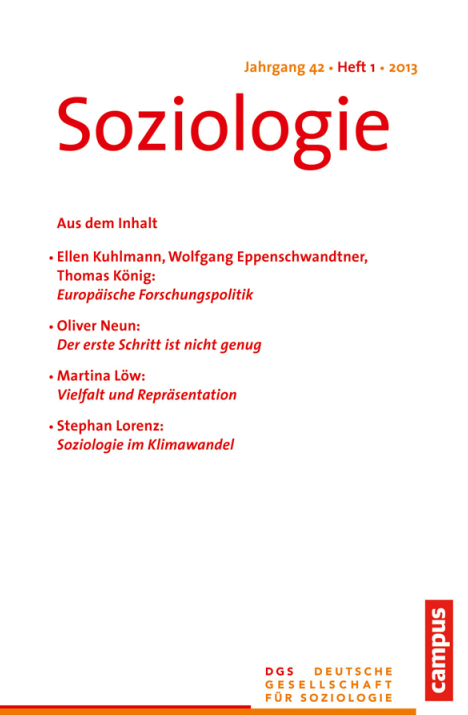Vielfalt und Repräsentation
Über den Bedeutungsverlust der symbolischen Mitte
Keywords:
Vielfalt, Soziologiekongress, Bochum, Dortmund, ZusammenhaltAbstract
Die Autorin nimmt das Thema des 36. DGS-Kongresses »Vielfalt und Zusammenhalt « auf, indem sie fragt, wie die Repräsentation öffentlicher Interessen unter Bedingungen von Vielfalt möglich bleibt. Gerade die große Gruppe an Professionen – neben Recht und Politik –, die mit der Ausgestaltung des Gemeinwesens und damit mit der Wahrung öffentlicher Interessen betraut ist, konstatiert regelmäßig Handlungsunfähigkeit angesichts der wahrgenommenen Vielfalt der Gesellschaft. Die Autorin zeigt, dass Vielfalt als Merkmal moderner Gesellschaften sich zwar in den Inhalten verändert, jedoch permanente Herausforderung für Handeln bleibt. Verändert hat sich in den letzten Jahrzehnten jedoch die Gewissheit über ein symbolisches Zentrum der Gesellschaft. Auf der Basis raumtheoretischer Überlegungen plädiert sie für ein an Bindungen und Verflechtungen orientiertes Verständnis des öffentlichen Interesses. Repräsentation unter Bedingungen von Vielfalt, so die These, könne von dem Bestreben geleitet sein, Relationen zwischen sozialen Gruppen sichtbar zu machen, und könne auf diese Weise professionelles Handeln anleiten.
Addressing the theme of the 36th DGS conference »Diversity and Cohesion«, the author explores the question of how public interests may be represented and ensured under conditions of increasing diversity. Given the perceived diversification of society, an increasing inability to act has been noted particularly among the large number of professions, which are – apart from politics and law – involved in shaping society and hence in protecting public interests. Diversification is a characteristic feature of modern societies and continues to be a key challenge for social action regardless of specific content, Löw contends. However, the certainty that there exists a central concept of normalcy as unifying symbolic centre in modern societies has been lost over the past few decades. Against the backdrop of spatial theory she argues for a different understanding of public interests based on social ligatures and interrelations. According to Löw, the representation and articulation of public interests under conditions of diversity should be grounded on the principle of rendering visible the interdependencies and relationships between social groups in order to evolve guidelines for professional conduct and practice from this perspective.


